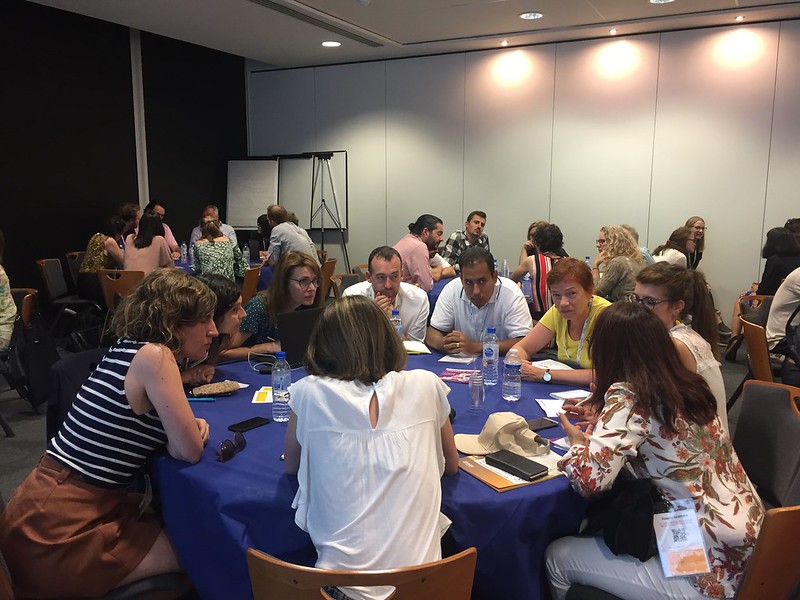Thanks to digital media, science has become more accessible – but which actors are trustworthy? This was discussed at the seminar “Has digital media changed how people feel about science?”, arranged by Vetenskap & Allmänhet and the Royal Institution of Great Britain on 12 July at the ESOF conference in Toulouse, France.

This highly interactive session attracted a diverse international audience of over 70 people, half of whom work with science communication, for lively discussions around the topic science and digital media. The seminar was led by Gail Cardew, Professor of Science, Culture and Society, and Director of Science and Education at the Royal Institution of Great Britain, with roundtable discussions facilitated by representatives of ten European science communication organisations:
- Sander Kask, Science Centre AHHAA Foundation, Estonia
- Giuseppe Pellegrini, Observa Science in Society, Italy
- Aleksandra Drecun, Intersection – Center for Science and Innovation, Serbia
- Camilla Modéer, EuroScience
- Enrico Balli, Sissa Medialab, Italy
- Philipp Burkard, Science et Cité, Switzerland
- Markus Weißkopf, Wissenschaft im Dialog, Germany
- Cissi Askwall, VA (Public & Science), Sweden
- Liina Hultgren, Royal Institution of Great Britain
- Katerina Kaouri, Scico Cyprus
So, how has digital media changed the way people feel about science? According to the participants, one thing is very clear: Digital media is providing science with a huge potential, by making science more accessible. Digital media also means great opportunities for involved, engaged and interactive discussions, that were simply not possible some years ago. On the other hand, changing from one-way to two-way communication is moving individual researchers into situations where they need to take care of their own communication.
At the same time, scientific information can be seen as equal with other kinds of information. Science is challenged when people regard a blog post filled with opinions as more trustworthy than a scientific article. The risk of conspiracies and false generalisations has risen – and the general public needs to be trained to judge what’s right or wrong.
Top Rated Opportunities and Challenges
The session was designed to get the audience’s views on a number of other questions too: What are the opportunities to open up science using digital media? What are the challenges and limitations of using digital media to communicate science? Following discussions around the tables, each facilitator summarised and inputted their group’s key points into a ‘menti’ tool. The whole audience was then invited to rate the points, providing an instant overview of the results.
“Open access to results and data” and “Reach young and new audiences” were the two top rated opportunities with digital media. For challenges, “trustworthiness of information and experts” came top, followed by “Reaching the right audience” and “Information overload”.
All the results from the discussions and voting that took place during the session can be found here.
“Lots of ideas were generated today. We will use this to disseminate to others, so they can use it to inform future science communication and public engagement work,” concluded Helen Garrison from Vetenskap & Allmänhet.
The session took place at ESOF (EuroScience Open Forum), the largest interdisciplinary science meeting in Europe. ESOF brings together leading thinkers, innovators, policy makers, journalists and educators from more than 90 countries, to discuss current and future breakthroughs in contemporary science. ESOF 2018 was held 9–14 July in Toulouse, France. The session was supported by Riksbankens Jubileumsfond – the Swedish Foundation for humanities and social sciences.
Esof #theta360 – Spherical Image – RICOH THETA
VA (Public & Science) also ran a session at ESOF on ‘NextGen SciComm – digital tales from the Nordics’
Text, Photo & Film: Anders Frick

